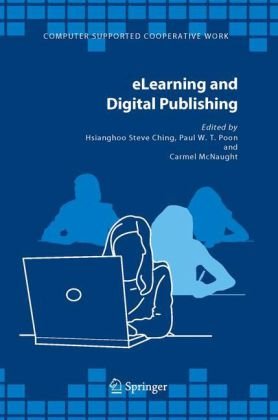

Most ebook files are in PDF format, so you can easily read them using various software such as Foxit Reader or directly on the Google Chrome browser.
Some ebook files are released by publishers in other formats such as .awz, .mobi, .epub, .fb2, etc. You may need to install specific software to read these formats on mobile/PC, such as Calibre.
Please read the tutorial at this link: https://ebookbell.com/faq
We offer FREE conversion to the popular formats you request; however, this may take some time. Therefore, right after payment, please email us, and we will try to provide the service as quickly as possible.
For some exceptional file formats or broken links (if any), please refrain from opening any disputes. Instead, email us first, and we will try to assist within a maximum of 6 hours.
EbookBell Team

4.3
88 reviewseLearning and Digital Publishing will occupy a unique niche in the literature accessed by library and publishing specialists, and by university teachers and planners. It examines the interfaces between the work done by four groups of university staff who have been in the past quite separate from, or only marginally related to, each other—library staff, university teachers, university policy makers, and staff who work in university publishing presses. All four groups are directly and intimately connected with the main functions of universities—the creation, management and dissemination of knowledge in a scholarly and reflective manner.
This book provides a framework which clearly portrays the relationships between information literacy, eLearning and digital publishing. The structure of the book has three main sections: the first has primarily an educational focus, the second a focus on digital publishing, and the third builds on the first two sections to examine overall implications for the growth of knowledge and scholarly communication.